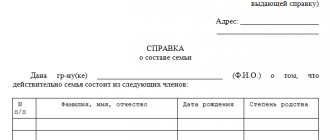Registration of an inheritance often requires time, effort and money. The heir has to visit the notary several times and, in certain cases, visit various authorities. Thus, visits add up to wasted time, which sometimes simply does not exist.
It’s a completely stalemate situation when an inheritance awaits in another city; it’s practically impossible to constantly travel between cities if a person is tied to certain matters.
Part 1 of Article 1153 of the Civil Code of the Russian Federation allows you to make a power of attorney for registration of inheritance - a notarized document of transfer of inheritance, which will allow a third party to manage procedural issues on behalf of the heir.
Appointment of a power of attorney
This power of attorney to receive an inheritance is a document that allows you to transfer a certain number of powers, including opening, registration processes, and other matters, to a third party to whom the heir fully trusts his rights.
The grantor must reflect in the document certain powers to receive an inheritance, including direct acceptance of the inheritance, otherwise this will lead to additional problems and unnecessary signatures on the part of the heir.
The validity period of the power of attorney extends to the entire period of receipt of the inheritance. If the deadline for receipt is delayed, the power of attorney is extended accordingly. The authorized representative is fully authorized to act; he can sign, visit courts, and communicate with a notary.
Contents of the power of attorney for inheritance
Any power of attorney, regardless of its type, must contain the following important information, otherwise it will be considered illegal:
- The name of the document is “Power of Attorney”.
- Date and place of execution of the document.
- Personal and contact details of the parties. Typically, full initials, passport series and number, registration address and contact phone numbers are indicated.
- The following is the text of the trust deed for inheritance, indicating the powers granted to the trustee.
- Validity period of the document.
- Date of issue of the power of attorney.
- Personal signatures of the authorized representative and the principal.
Below the power of attorney is a block that is filled out by the notary.
It includes the following data:
- The date and place of certification of this document and its entry into official legal force.
- Confirmation of the fact of certification by a notary.
- Confirmation of the principal's legal capacity.
- Confirmation of the fact of reading the text of the power of attorney in the presence of the principal.
- Registration number of a valid document in the Rosreestr of notarial documentation.
- The amount charged according to the tariff for notarial work.
- Personal signature of the notary.
All points specified in the power of attorney must be discussed by the parties in advance. A power of attorney cannot be concluded without mutual consent.
Is it possible to enter into an inheritance by proxy?
The obvious answer is yes.
- Some people, for their own reasons, do not want to deal with the inheritance process themselves. Although papers go through notaries and other legal entities, there are people who are completely far from such matters. In addition, it should be understood that inheritance occurs due to loss, and the processing time is six months, so a person may not be mentally prepared to go through the authorities or win back his own.
- The modern rhythm of life forces almost everyone to work hard, so there is very little time left for third-party tasks, in addition, many employers refuse to put themselves in the position of a person who is given a certain period of time to complete all the documents. Government agencies have clearly fixed working hours, so it is physically impossible to get there outside of working hours.
- The inheritance opens where the testator lived; more often, a certain district of the city is even taken into account; it is the district notary who draws up all the documents. However, a person may be a resident of another city or region. It will be too difficult to visit authorities in another city just to put one of your signatures. Authorities do not send documents by postal order, so distances also play a big role.
- Many people know the joke about an uncle or aunt from America who leaves millions, but this situation sometimes really happens. If other countries have their own legislative framework for registration of inheritance law, then citizens from other countries, using a power of attorney, can draw up the necessary documentation in Russia.
We recommend reading: Claim for restoration of the period for accepting an inheritance: sample application
Therefore, the answer to the question of whether it is possible to enter into an inheritance by proxy is an unequivocal answer - it is possible. By completing the paperwork once, you can subsequently save yourself a lot of effort, time and nerves.
Procedure for entering into inheritance by power of attorney
If the recipient enters into an inheritance by law, then the heir’s representative needs to contact the notary at the place of residence of the deceased subject (Article 1153 of the Civil Code of the Russian Federation). When inheriting by will, you must contact the notary who keeps the document.
You will also need a basic package of documents and an original power of attorney. 6 months to submit papers . The terms begin to be calculated from the date of death of the testator.
The inheritance procedure can be divided into several stages:
- Preparation of documents.
- Submitting an application to a notary.
- Carrying out property valuation.
- Paying the state fee and obtaining a certificate.
- Registration of property rights.
If the applicant misses the deadline for entering into inheritance (Article 1155 of the Civil Code of the Russian Federation) or a dispute arises between the heirs, then such issues will be considered by the court. Any interested person can file a claim. The general limitation period is 3 years .
If the heir missed the deadline for filing papers, then the application must be submitted within 6 months . The countdown begins from the moment the reason for absence ends. For example, after returning home from a foreign business trip.
Inheritance procedure
If there is a power of attorney, the interests of the heir are represented by a trusted person. His responsibilities include collecting the necessary documents for the notary. Naturally, the heir must assist the representative in every possible way.
After all, most of the papers are usually kept by the relatives of the testator. If the heir’s relatives doubt the citizen’s powers, they can check the power of attorney on the website of the Federal Notary Chamber.
The representative must contact a notary office. The notary will check the submitted documents and verify the authority of the representative.
After explaining the rights/responsibilities, the notary will invite the representative to submit an application for acceptance of the inheritance. An inheritance case is opened solely at the request of the heir or his representative.
The next stage is an expert assessment of the identified property. A report from specialists is required to calculate the state duty.
Important! Without an assessment and payment of the fee, the notary will not issue a certificate of inheritance.
It is not required in exceptional cases. For example, if a cash deposit in a bank is subject to inheritance.
After six months, the representative needs to visit the notary again. At this stage, the number of applicants is determined, the shares of heirs are calculated, the amount of tax is calculated, and a certificate is issued.
After receiving the main document, all that remains is to register ownership. The choice of government agency depends on the type of property that the principal inherited.
Important! If the heir authorized the representative only to obtain a certificate, then he will have to register the rights independently.
Statement
The basic document when registering an inheritance is an application. The law does not provide for a special form of the document. Each notary has his own sample.
Application details:
- Name of the notary office.
- Recipient information.
- Representative information.
- Details of the power of attorney.
- An indication of the degree of relationship between the heir and the deceased citizen.
- Display the method of inheritance (law/will).
- The heir's request.
- Date of submission of documents.
- Applicant's signature.
Sample application for acceptance of inheritance
Documentation
Some documents must be attached to the application.
These include:
- Applicant's identity card.
- Power of attorney for registration of inheritance.
- Death certificate of an individual.
- Certificate of the last place of registration of the deceased owner.
- Original order (if available).
- Evidence of the relationship between the heir and the testator (in case of inheritance by law).
- Documents for identified inheritance.
- Report on the value of the inheritance or an extract from Rosreestr.
- Receipt of payment of the duty.
The identity of the representative is established by the notary when submitting the application. Therefore, the authorized person needs to have a passport of a citizen of the Russian Federation with him.
Expenses
The costs of registering an inheritance are borne by the applicant for the property (Article 333.24 of the Tax Code of the Russian Federation). However, a representative can pay for the appraiser’s services or state fees. The main expense item is state duty.
It is calculated as follows:
- 0.3% for close relatives of the owner . They pay significantly less than other heirs. The legislator not only reduced the base rate, but also limited the maximum tax amount. It should not exceed 100,000 rubles. This amount of payment applies to children, parents, spouses, brothers and sisters of the deceased citizen.
- 0.6% for other recipients . This group of heirs includes all other applicants (individuals and legal entities). The maximum amount of duty is set at RUB 1,000,000.
Separately, the heirs pay for the services of the appraiser. The cost of services of a specialized specialist depends on the type of property.
The apartment's valuation is about 3 thousand rubles. Whereas a certificate from the BTI will cost the applicant from 300 to 600 rubles. A similar document from Rosreestr on the cadastral value of real estate is issued for 350 rubles.
To evaluate a vehicle you will need from 2 to 5 thousand rubles. Several factors are taken into account here - whether the car is a car or a truck, whether the car is used for commercial purposes, and the condition of the vehicle.
Notary services are paid separately from the state fee. To specify the costs of a notary when entering into an inheritance, you must use the service of the Federal Notary Chamber. The amount of payment directly depends on the region of circulation.
The final stage is the registration of property rights to an apartment (Federal Law No. 218 of 2015) or a car. Here the heir will also have to spend money. Registration of a property costs individuals 2,000 rubles.
If the heir is entitled to a share in the common property of an apartment building, then the state duty is 200 rubles.
Deadlines
Heirs of the first stage are given 6 months to assume rights. A similar rule applies to applicants for property in the order of presentation.
If the trustee acts on behalf of the second-order heir, then the papers are submitted 6 months after the death of the testator. Missing deadlines can lead to loss of inheritance or protracted legal proceedings.
Important! Shifting deadlines is permitted in special cases. For example, if the heir accepted the property after the fact. Therefore, the application can be submitted after the deadline. The only condition is the presence of indisputable evidence of acceptance of the inheritance.
Procedure for issuing a power of attorney
After deciding that the procedures will take place through inheritance by proxy, you need to pay a visit to the notary. You can discuss all the necessary points with a notary, he will tell you how to start the entry process, and also provide a power of attorney form with a serial identification number.
The introduction of third parties must be carried out competently, taking into account the main nuances of the inheritance system. Therefore, a general power of attorney for registration of inheritance is drawn up only by a legally savvy person authorized to draw up these documents by a person.
In most cases, a power of attorney is issued simply, quickly, requiring minimal financial and time costs. The notary carries out the registration, tells you how to draw up a power of attorney, and notarizes the validity of the transaction. After certain actions, the power of attorney receives legal force, after which the heir is freed from subsequent paperwork.
- Only after receiving a notarized copy of the power of attorney can a third party begin the process of writing and filing an application for inheritance. Until the document is issued, all rights belong exclusively to the heir.
- The notary must check the attorney's documents so that this person can act as the main person in the transaction. After checking the documents, the notary may require additional certificates, which must be provided.
- Any legal case is built on materials. The nature of the materials is determined by the necessary requirements of the law, but if any papers are missing, you will have to start collecting them. If the heir has limited time resources, the attorney independently handles the collection.
- After checking all the documents provided, the notary makes a decision on the entry into force of the power of attorney. In most cases, a power of attorney is issued fairly quickly, but if a legal entity has a number of questions, or the documents are drawn up incorrectly or are brought in incompletely, the process may be delayed.
Registration of inheritance by power of attorney is a simple legal process, a formality that sometimes, given our laws, seems almost impossible. However, the final decision whether it is possible to formalize an inheritance by power of attorney rests, of course, with a specialized legal entity, which assesses the situation from the perspective of the available documents, which play a decisive role in the entry.
We recommend reading: What documents are needed to enter into an inheritance?
How to enter into inheritance by proxy
From the moment the power of attorney is issued to receive an inheritance, all actions necessary for the alienation of the testator’s property are performed by the attorney. First of all, he should contact a notary. Regarding Article 1153 of the Civil Code of the Russian Federation, the choice of a notary office occurs as follows:
- when inheriting by law, you need to contact a notary working at the place of residence of the deceased;
- if the deceased left a will, then the documents are submitted to the specialist who keeps a copy of the document.
In addition to the basic package of documents, the representative will need a power of attorney for registration of inheritance and identification. You should contact a notary within six months after the death of the testator. The procedure involves several stages:
- Collection of necessary documents.
- Contacting a notary.
- Conducting an independent assessment of property.
- Payment of duty.
- Obtaining a certificate.
- Re-registration of property rights to a new owner.
If the deadline for entering into an inheritance is missed, the attorney will have to go to court. The same applies to situations where a dispute arises between successors. By law, any interested person can challenge a will in court.
Actions of the representative
The duties of the trustee include collecting documents and then submitting them to the notary. In this case, the heir himself must provide all possible assistance to his representative. Most of the documents are kept by the relatives of the deceased, and therefore they should not interfere with the actions of the authorized person.
After the representative contacts the notary’s office, the notary must check the documents provided. Next, he will invite the applicant to write an application for a certificate.
To determine the amount of the state duty, an expert assessment of the value of the testator’s property will be required. It must be ordered by the heir's representative. Then he pays the fee and receives a certificate of inheritance. This document is the basis for the re-registration of property rights to the alienated property.
The heir can entrust the representative only with submitting documents and obtaining a certificate. In this case, he will have to register property rights independently.
How to write a statement
To enter into inheritance rights, the successor needs to write an application and submit it to a notary. The document is drawn up in a specific form and contains the following information:
- Personal data of the recipient and his representative.
- Details of the power of attorney.
- Indication of the method of accepting the property of the deceased: by will or by law.
- Information about the degree of relationship with the deceased.
- The main text in which the heir agrees to partially or fully accept the testator's property.
- Signature and date.
Required documents
When submitting an application through a legal representative, the heir must collect the following documents:
- Passports of the successor and attorney.
- Power of attorney for registration of inheritance.
- Death certificate of the testator.
- Original will (if available).
- Certificate from the place of last registration of the deceased.
- Documents confirming relationship (in the absence of a will).
- An extract from Rosreestr or a report on the assessment of the property.
- Title documents for alienated objects.
- Receipt for payment of state duty.
Having received the documents, the notary must first establish the identity of the representative and determine the competence of his actions. He then checks the provided papers.
What to do after receiving the certificate
Having received the certificate, the trustee has only one step left - registration of property rights to the heir. If we are talking about real estate, then documents must be submitted to Rosreestr by a notary. They should be accompanied by a statement written by the heir or his legal representative. Typically the registration process lasts no more than 12 days.
To register a vehicle, you should contact the traffic police department. Documents must be submitted within 10 days from the date of receipt of the certificate. Otherwise, the heir will be fined.
There is a certain layer of people who most often become attorneys
- Close relatives are the most popular option. If relatives have the same surnames, it’s doubly better, the proof of relationship is unambiguous, so these persons are most suitable for the role of verified persons. Relatives are the most preferable option.
- Often, close friends and good acquaintances turn out to be closer than real relatives. Some people trust their affairs more to them than to blood relatives. The main requirement is a good reputation. If a friend had, or has difficulties with the law, any other dark spots in his biography, it will be almost impossible to notarize a power of attorney for such a person; the representative must be one hundred percent clear before the law.
- People who do not want to owe anything to third parties hire notary offices. Of course, this option will be the most unprofitable, but the most correct. By paying for certain services, you can be sure that all work will be carried out on time, documents will be filled out, signatures will be provided. For a notary, this process is standard work.
You can entrust your inheritance to different people, the main thing is to make a reliable choice, because if a person gives the right to dispose of his inheritance to a third party, there will be no turning back.
Required documents
It was stated above that the notary will request certain documents in order to verify the attorney. In addition to the trust of the heir, additional verification is an important point in order to exclude all points that simply may not be known. Thus, you need to provide the following documents:
- Two passports, directly of the heir and of the confidant. Originals are provided along with copies.
- Death certificate of the testator.
- Any documents that confirm the relationship with the testator, possibly a will (acceptance of inheritance by law), or house books, a lease agreement, confirming joint registration, joint ownership of a car.
- Documents confirming the existence, ownership of property, ownership: documents for the house, vehicle title, checks, if the property is small.
The necessary certificates and documents are provided at a time to obtain notarization for each, then draw up a power of attorney.
A power of attorney gives the right to manage the details of a transaction either permanently or for a certain period: one year, three years, five years. The deadlines must be specified, otherwise the power of attorney will be declared invalid. In addition to the deadlines, additional details are prescribed, for example, the possibility of revoking the power of attorney - an important point if something suddenly goes against the plan, the possibility of refusal by the attorney, and the possibility of incapacity of both parties.
We recommend reading: What does a will for an apartment look like?
After drawing up this paper, you can begin to work through the processes, write an application for acceptance of the inheritance, and work out the moments of transfer of property.
On entering into inheritance by proxy
According to the law, the successor must submit documents in person to obtain a certificate of inheritance. If necessary, action through a representative is allowed. To do this, the heir turns to a notary and draws up a power of attorney, which is then certified.
In some cases, a legal representative may act without a power of attorney. For example, if the heir is a minor, then a parent, adoptive parent or guardian takes part in the inheritance instead. To do this, the following documents are submitted to the notary:
- parent's ID card;
- child's birth certificate.
If the parents are deprived of parental rights or the child is an orphan, then the list of additional documents is determined by the applicant’s status:
- Trustees and guardians must present the appointment order and the relevant certificate.
- The adoptive parent presents his civil passport and birth certificate of the minor.
- Adoptive parent. You will need a certificate of the adoptive parent, a personal passport, a child’s birth certificate and an agreement on the transfer of a minor to foster care.
- Child protection. Power of attorney of the organization for an authorized representative. The document is certified by the manager.
- Organization for orphans. Power of attorney for a representative (with certification from the head), an order to place the child under supervision.
Adoptive parents are not required to provide a certificate or court decision on adoption. According to the law of the Russian Federation, the interests of such persons are protected by the secrecy of adoption. However, this rule has one exception, when a child inherits the property of a deceased parent, which is reflected in Article 137 of the Family Code of the Russian Federation.
Regardless of the circumstances, the main document of the representative is the civil passport of the Russian Federation.
Where to start the registration procedure
The process of obtaining an inheritance does not always go smoothly. It is necessary to take into account some circumstances that potential heirs and their representatives may encounter.
What you need to know:
| Grounds for receiving inheritance | Initially, you should clarify information about whether a will has been drawn up, or whether the inheritance process will take place according to the law, depending on family ties. |
| Where to contact | In order to legally become an heir to the property left behind, a citizen, in accordance with Art. 1153 of the Civil Code of the Russian Federation must submit an application for acceptance of the inheritance to the notary involved in the inheritance matter. |
| List of property | It is better to clarify in advance what exactly is included in the inheritance. If this is an unnecessary thing, then you can simply write a refusal with a notary and not enter into an inheritance. If the testator left significant property assets after death, including real estate or a car, then you should consider what will need to be specified in the power of attorney. |
| Who can be a confidant | A citizen can choose any person willing to become a representative throughout the entire process. This could be a relative or friend you trust, or a lawyer hired for a monetary reward. |
The representative from the heir must be over 18 years of age and have legal capacity. Otherwise, he will not be able to fulfill the duties assigned to him.
What to do if the heir is in another city?
The news of the death of a loved one can find a person anywhere. What to do if the heir lives in another area? The procedure for registering an inheritance may take up to a single day. It is necessary to submit an application, collect various forms and certificates. All this will take time.
If a person cannot engage in the process independently, then there are two options:
| Send an application by mail | In this case it is necessary: · contact a notary's office in the city where the applicant for the inheritance lives; · write a statement of readiness to receive the inheritance; · collect the necessary documents; · in the office, certify the application form and copies of the attached forms; · the complete set is sent to the notary office in the area where the testator lived. |
| Send your representative | To draw up a power of attorney, you will need to contact a notary office so that a specialist can certify the powers of the authorized person with his signature. |
When sending by mail, please note the following:
- the letter is sent by registered mail with return receipt requested;
- If the envelope arrives at the office after the expiration of the six-month period, the notary will take into account the date of the postage stamp. If it is sent within the prescribed period, the specialist will accept the documents for consideration;
- When sent by mail, the letter may get lost, so this method is not the most reliable.
If the heir himself cannot travel to another city where the deceased relative lived in recent years, then he can send a representative on his behalf.
Sample power of attorney
Power of attorney for inheritance is widely used on the Internet. This is due, firstly, to the widespread use of self-drafting of this document. However, if any controversial issues arise, it will become much more difficult to resolve them if the paper is simply written by the participant in the process without additional notarizations. That is why a power of attorney to accept an inheritance, a sample of which is widespread everywhere, is best drawn up at a notary’s office. There are several types of power of attorney.
- One-time is designed to perform a specific action. For example, if the testator can independently control the process, travel, but there is some obstacle, for example, you need to attend a court hearing, but there is no opportunity.
- A special one allows you to perform several identical actions, for example, signing documents or attending court.
- General offers the widest range of possibilities. During the entire specified period, you can perform any actions in place of the heir.
Samples of filling out the power of attorney, an example of writing is available from the notary, or to familiarize yourself with the rules for filling out, you can first look on the Internet. Certain information must be provided.
- Date of compilation, place of compilation. If there is a notary office, the name of the office.
- Principal's passport details.
- Passport details of the person being trusted.
- The powers vested in the guarantor are indicated.
- List of property that is being transferred.
- Signatures of the principal, notary, official seal.
In this way, one document regulates the list of all assigned powers, is certified, and therefore acts as a full-fledged supporting document.
Power of attorney for inheritance
A power of attorney to enter into an inheritance is a document that officially confirms that the trustee has the right to perform the actions necessary to accept the inheritance by law on behalf of the principal (in this case, the heir).
Any person acting as an heir, but who does not have the desire or ability to deal with the procedure for preparing documentation for entering into his inheritance, can draw up such a document. Such a person has the right to delegate his powers to legal actions to formalize inheritance by drawing up a power of attorney.
If the legal heir has not reached the age of majority or is disabled, then his authorized representatives can also draw up a power of attorney to enter into an inheritance, but only with the consent of the heir, as well as the guardianship and trusteeship authorities.
The heir independently chooses a trusted person who will handle the preparation of his documents. This trustee can be either a friend or relative, or a stranger (for example, a lawyer), the main thing is that he agrees to assume the authority to formalize the trustor’s inheritance.
There is only one strict requirement for a trustee - he must be legally capable and of legal age. Otherwise, the power of attorney will be considered invalid, and the actions performed by such a proxy will not comply with the law.
Duration of power of attorney
There are several options for writing an official paper. The main criterion is the extent to which the testator himself cannot participate in the inheritance process. Thus, given the six-month duration of the entry process, the most common power of attorney is valid for one year with the right to sign, as well as participate in all meetings that may arise.
A shorter period (up to a year) is chosen if a person can independently regulate the process of receiving an inheritance.
However, there are completely different cases of inheritance. So, sometimes there are too many applicants for one property. Such issues are resolved in court, so the inheritance process is often drawn out, lasting for years. If it is not possible to attend all meetings, there is a need to hire an attorney who will close all open issues with his signature. There are people who simply do not like various types of authorities; for such, the right of transfer will also be a real salvation.










